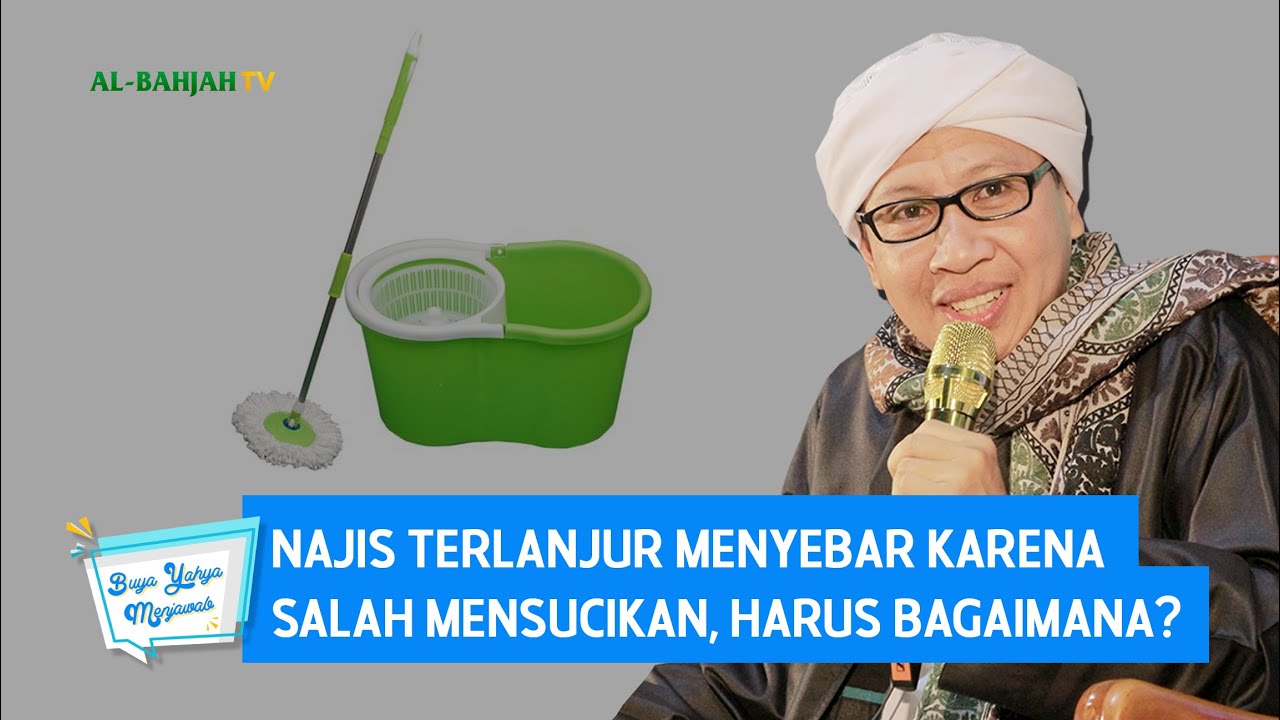Bersuci dari Najis dan Hadas Besar
Summary
TLDRIn this instructional session, an Ustazah explains the concept of Thaharah, or purification, which involves cleaning the body, clothing, and places from impurities and hadas (ritual impurities). The discussion covers different types of impurities, such as light (mukhafafah), medium (mutawasitah), and heavy (mughaladah), along with their purification methods. The session also addresses questions from students about specific scenarios, such as the impurity of bird droppings and the permissibility of fasting while in a state of junub (ritual impurity). Additionally, the Ustazah outlines the process of performing the obligatory ritual bath (ghusl) to cleanse oneself from major impurities.
Takeaways
- 🎶 The lesson begins with greetings and an introduction to the topic of purification (Thaharah).
- ❓ Thaharah is the act of cleaning the body, clothes, and place from impurities and dirt.
- 🕊️ Bird droppings are considered moderate impurities (najis mutawasitah), and can be cleaned with clean water.
- 🔸 Impurities are categorized into three types: light (mukhafafah), moderate (mutawasitah), and heavy (mughaladah).
- 👶 Light impurities include baby boy's urine under two years old, which is cleaned by sprinkling water.
- 🐕 Heavy impurities include dog and pig excrement, which require washing six times with water and once with a mixture of water and soil.
- 🩸 Moderate impurities include blood, pus, vomit, and excrement from animals and humans, cleaned by washing until smell, taste, and color are gone.
- 💧 Various natural waters like rain, well, river, snow, sea, pond, and dew are pure and can be used for purification.
- 🌙 Major ritual impurities (hadas besar) include menstrual blood and semen, which require a full-body ritual washing (ghusl).
- 🛀 The process of ghusl involves the intention, washing the entire body, and following certain recommended practices for thorough cleanliness.
Q & A
What is the definition of Thaharah?
-Thaharah, or purification, is the act of cleaning the body, clothes, and place from dirt, impurities (najis), and hadas.
Is bird droppings considered najis (impure)?
-Yes, bird droppings are considered medium impurity (najis mutawasitah).
What are the three types of najis (impurities) in Islam?
-The three types of najis are light impurity (mukhafafah), medium impurity (mutawasitah), and heavy impurity (mughaladah).
Can you provide an example of light impurity (najis mukhafafah) and its cleaning method?
-An example of light impurity is the urine of a baby boy under two years old who has not consumed anything other than his mother's milk. It can be cleaned by sprinkling water over the affected area.
How is heavy impurity (najis mughaladah) like dog or pig excrement cleaned?
-Heavy impurity is cleaned by washing the affected area six times with water and once with a mixture of water and soil.
What are some examples of medium impurity (najis mutawasitah) and their cleaning method?
-Examples of medium impurity include blood, pus, vomit, and feces. These are cleaned by washing the affected area until the smell, taste, and color of the impurity are removed.
What types of water are considered pure and purifying for Thaharah?
-Pure and purifying water includes rainwater, well water, river water, snow water, sea water, lake water, and dew.
What is hadas and how does it affect a Muslim's ability to perform certain acts of worship?
-Hadas refers to a state of impurity that prevents a Muslim from performing acts of worship like prayer and Tawaf. There are two types of hadas: minor and major.
What are examples of major hadas?
-Examples of major hadas include menstruation (haid) and seminal discharge (mani).
What should be done after experiencing major hadas such as menstruation or seminal discharge?
-After experiencing major hadas, one must perform a ritual purification (ghusl) which involves intending to purify oneself, and washing the entire body.
Is it permissible for a person in a state of major hadas to fast?
-Yes, it is permissible for a person who is in a state of major hadas due to seminal discharge to fast, unlike a woman experiencing menstruation, who is not permitted to fast during that time.
What are the steps for performing a proper ghusl (ritual purification)?
-The steps for ghusl include intending to purify oneself, washing both hands, cleaning any dirt from the body, performing ablution (wudu), washing the roots of the hair, pouring water over the head three times, and washing the entire body starting from the right side.
Outlines

This section is available to paid users only. Please upgrade to access this part.
Upgrade NowMindmap

This section is available to paid users only. Please upgrade to access this part.
Upgrade NowKeywords

This section is available to paid users only. Please upgrade to access this part.
Upgrade NowHighlights

This section is available to paid users only. Please upgrade to access this part.
Upgrade NowTranscripts

This section is available to paid users only. Please upgrade to access this part.
Upgrade NowBrowse More Related Video

1. Fiqh Ibadah Bab Thaharah

PAI SD KELAS 1 : 06. PENGERTIAN BERSUCI (THAHARAH)

Ahkam in Brief - How to perform Ghusl

Mentoring Tafaqquh Fiddin UTM_Materi Ke-3 (Bab Thaharoh) Pemateri: Muhammad Ajib.,M.H

Materi Fiqih - Bab Thaharah || Pengertian Thaharah, Hadas, Najis, Air ( Pelajaran Fiqih Kelas 7 )

Najis Terlanjur Menyebar karena Salah Mensucikan, Harus Bagaimana ? - Buya Yahya Menjawab
5.0 / 5 (0 votes)